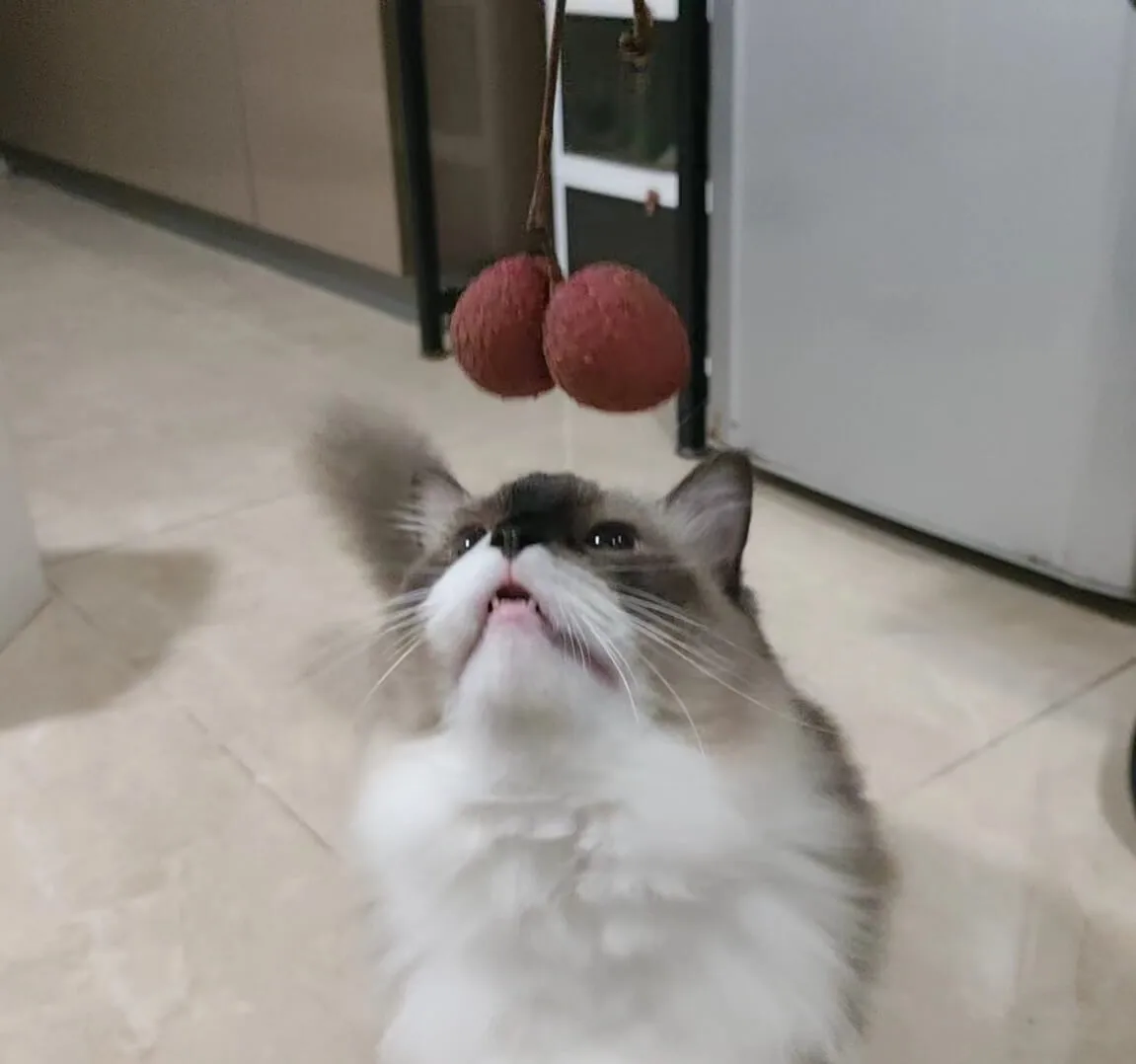Why Do Some Cats Like Fruits?

Ever noticed your cat eyeing your fruit bowl with more interest than you thought possible? I have a friend whose feline companion absolutely adores fruits, particularly strawberries. It's a curious phenomenon, considering cats lack the taste receptors for sweetness. So why are some cats so intrigued by fruits?
Why Do Some Cats Like Fruits?
The Allure of Curiosity
One primary reason cats might show interest in fruits is sheer curiosity. Cats are naturally inquisitive creatures, always eager to investigate new objects in their environment. If you've ever brought home something new, you know your cat will be the first to sniff around. Fruits are no exception.
Picture this: you pull out an assortment of colorful, oddly-shaped, and fragrant fruits from the refrigerator—the same refrigerator that houses your cat's beloved canned food. You start munching on these strange items, and your cat's curiosity is piqued. Why is this thing that smells so interesting off-limits to them? Driven by curiosity, many cats will give the fruit a few licks, but most won't go beyond that.
The Tempting Scent
Certain fruits give off aromas that are particularly enticing to cats. Take cantaloupe, for instance. Ripe cantaloupe emits a unique scent that contains amino acids and fatty acids, similar to those found in meat. Cats might perceive cantaloupe as some exotic kind of meat and decide to take a taste.
While the exact reason cats might enjoy watermelon or strawberries remains unclear, it could simply be the texture or the moisture content that they find appealing. The fleshy, juicy consistency of these fruits might be refreshing and satisfying to them.

Although cats are obligate carnivores and don't need fruits in their diet, some can safely enjoy them in moderation. Here are a few fruits that are generally safe for cats:
- Bananas
- Watermelon
- Strawberries
- Blueberries
- Apples (without seeds)
- Mangoes
- Pineapples
- Cantaloupe
However, it's important to remember that fruits should only be given occasionally and in small quantities. Many fruits contain high levels of sugar, which can lead to obesity and digestive issues in cats. Here are some tips if you decide to treat your cat to some fruit:
- Moderation is Key: Only offer small amounts to avoid digestive upset.
- Clean Thoroughly: Wash fruits to remove any pesticide residues.
- Remove Seeds and Pits: Seeds and pits can be toxic to cats.
- Cut into Small Pieces: To prevent choking, cut fruits into manageable bites.
Fruits to Avoid
Not all fruits are safe for feline consumption. Some are toxic and should be kept out of reach:
- Citrus fruits (oranges, lemons, limes)
- Grapes and raisins
- Tomatoes
- Cherries
If your cat ingests any of these, contact your veterinarian immediately.
Conclusion
While the sight of a cat nibbling on a piece of fruit might seem strange, it's usually a harmless curiosity or a fascination with the fruit's scent or texture. As long as you stick to safe fruits and offer them in moderation, your cat can enjoy these occasional treats. Just remember, their primary diet should always be meat-based to meet their nutritional needs.